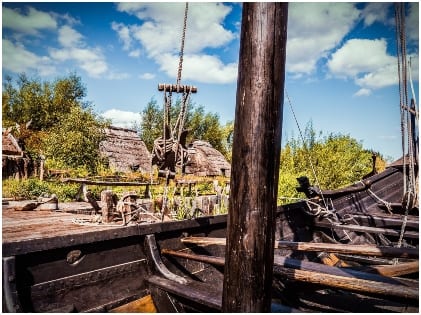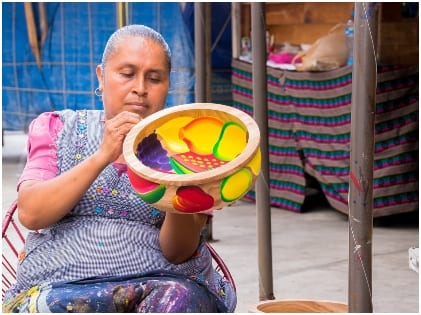Throughout human history, innumerable communities have survived from time unknown. Numerous traditional communities have sustained themselves till today and have thrived in areas where there has been hardly any footfall of the outside world. They have lived in deserts, mountains, forests, and even remote jungles. Some of them have continued to live in isolation, far from modern society.
According to the United Nations’ estimated statistics, more than 370 million indigenous people live in over 70 countries across the planet. They speak more than 5000 languages. But, as economic development has failed to reach such distant and remote areas, these communities’ lives are under threat. However, they have held on to their cultures and fiercely against any exploitation of their territories.
Ecovillages

Despite having a long history, the indigenous communities are under pressure to enter the economic system that the world runs on. Though they would benefit from this system, it would be at the cost of losing their land and culture.
Moreover, it’s an unsustainable system. The world has witnessed plenty of threats such as climate change as well as biodiversity crises. Over the past forty years, there has been a 52 percent decline in birds, animals, fish, and reptiles. All this is because of overfishing, coastal development, and pollution. The coral reefs face the risk of dying.
You will be stunned to know that only 15 percent of the total forest area on the globe is intact. IPCC or the Intergovernmental Panel on Climate Change has found that GHG or Greenhouse Gas Emissions owing to human activity have taken the average temperature of the planet by 0.85 degrees Celsius. If the temperature continues to increase, human civilization will get extinct one day. The western culture that you see today has existed over the last 200 years, and experts say it’s highly unsustainable. What’s living well according to you? To many, living well is nothing but maintaining a cozy relationship with Mother Earth. It’s not about dominating nature and extracting whatever you feel like.
No Development Projects Needed
For communities that have made mountains their home, life is callous. The impacts of various global factors such as climate change are becoming apparent with every passing day. These communities say that they don’t require any big development projects to move forward in life. They don’t require luxury or huge facilities to live their life. All they need is small and simple things. Mining projects and big dams are not what these communities dream of.
Around 14 million to 17 million people are living in The Philippines. That comes to almost 17% of the nation’s total population. Their traditional life is under threat due to the aggression of modern developments across the country. Displacement from the destruction of the lands that once belonged to their ancestors took a toll on them. And that is unfortunate.
Where Else Are These Communities Facing The Same Fate?
 One hundred seven million people from different tribes reside in India. Known as Adivasis, they are almost in an identical situation. According to them, they have tried their best to resist any initiative by the government. Andhra Pradesh, a state in India, has a population of 49 million. As per the 2011 census, 5.3 percent of these 49 million people are scheduled tribes. That comes to a little below 3 million people.
One hundred seven million people from different tribes reside in India. Known as Adivasis, they are almost in an identical situation. According to them, they have tried their best to resist any initiative by the government. Andhra Pradesh, a state in India, has a population of 49 million. As per the 2011 census, 5.3 percent of these 49 million people are scheduled tribes. That comes to a little below 3 million people.
The tribes that live in the neighboring areas have agreed to the government’s policies to adopt modern and scientific agricultural methods using chemical fertilizers and stuff. They are having terrible times now. Climate change is taking a toll on planting as well as harvesting. Consequently, the natural cycle has undergone a complete change and has put the communities in trouble.
Protecting Indigenous Communities

Several indigenous people have been living for a long, thanks to their holistic culture and conventional knowledge. They have their methods of cultivation.
For instance, the Quechua tribe in southern Peru has taken the help of their customary agricultural laws and has managed to reap 2000 varieties of potatoes. They have preserved their lifestyle and happy with the way they are. They should be protected as these people are the ones who are trying to protect the Earth.
These tribes want to hold on to their culture and their existence. The governments should notice that and not intrude into space. And they should not try to take the land away from tribes who have owned it for hundreds and thousands of years.




